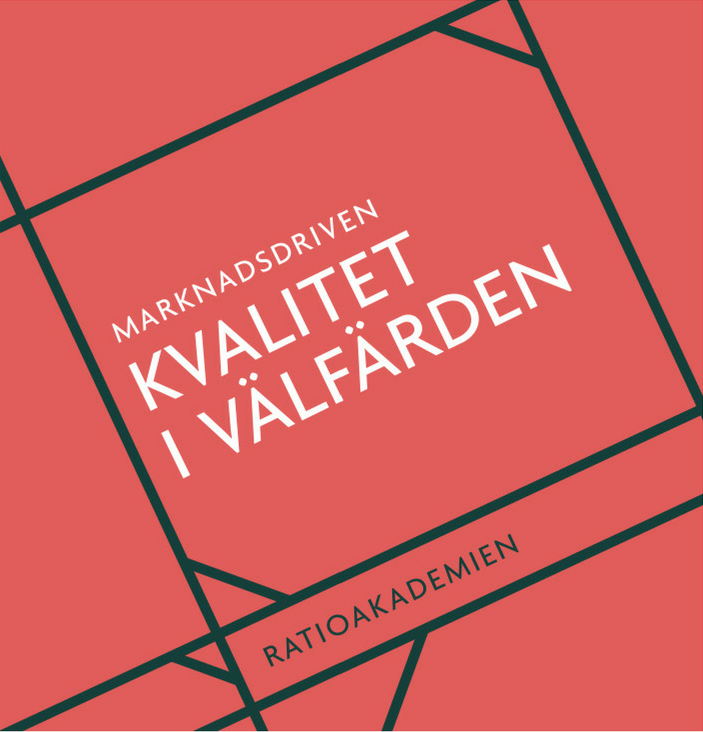Marknadsdriven kvalitet i välfärden – Rapport från Ratioakademien
Abstract
Det behövs ett perspektivskifte i välfärdsdiskussionen. Viktigast är välfärdens kvalitet, och utvecklingen av fler och bättre kriterier för att bedöma denna.
Företagande och marknadslösningar har här mycket att bidra med. I Marknadsdriven kvalitet i välfärden presenteras en rad mekanismer och metoder som skulle kunna användas för att kvalitetssäkra den svenska välfärden.
Konkurrens och valfrihet är kvalitetsdrivande. Privata och offentliga välfärdsproducenter ska behandlas och följas upp på samma sätt. Upphandlingar styr idag fel och för lite om kvalitet. Slöseri med skattebetalarnas medel är problemet, inte vinster i välfärden. Svensk välfärd kan inte fungera utan privata aktörer.
Ratioakademien. (2017). Marknadsdriven kvalitet i välfärden – Rapport från Ratioakademien.
Om Ratioakademien
Ratioakademien startade hösten 2015 och består av företagare och företagsledare från ett brett spektrum av branscher med erfarenhet från stora och små, noterade och onoterade, unga och mogna, företag från olika delar av Sverige.
Akademien utgör ett kvalifcerat forum för att föra formativa samtal om hur företagandets villkor ska kunna utvecklas och förbättras, utifrån ett marknadsekonomiskt tillväxtperspektiv. Akademien står fri från organiserade intressen.
Preses för Ratioakademien: Björn Wahlroos, ordförande Nordea. Övriga ledamöter är Rune Andersson, ordförande Mellby Gård AB, Charlotte Bohman, vd C&A Bohman Invest, Mariana Burenstam Linder, ordförande Sverige-Amerika Stiftelsen, Peje Emilsson, entreprenör och grundare av Kreab, Demoskop, Kunskapsskolan och Silver Life, Anastasia Georgiadou, vd Alminia AB, Fredrika Gullfot, vd Simris Alg, Nils Karlson, vd Ratio, omas von Koch, vd EQT, Dan Olofsson, ägare Danir, Biörn Riese, senior advisor Jurie, Susanne Sidén, vd Frösunda Omsorg AB, samt Fredrik Spendrup, vd Spendrups Bryggerier AB.

